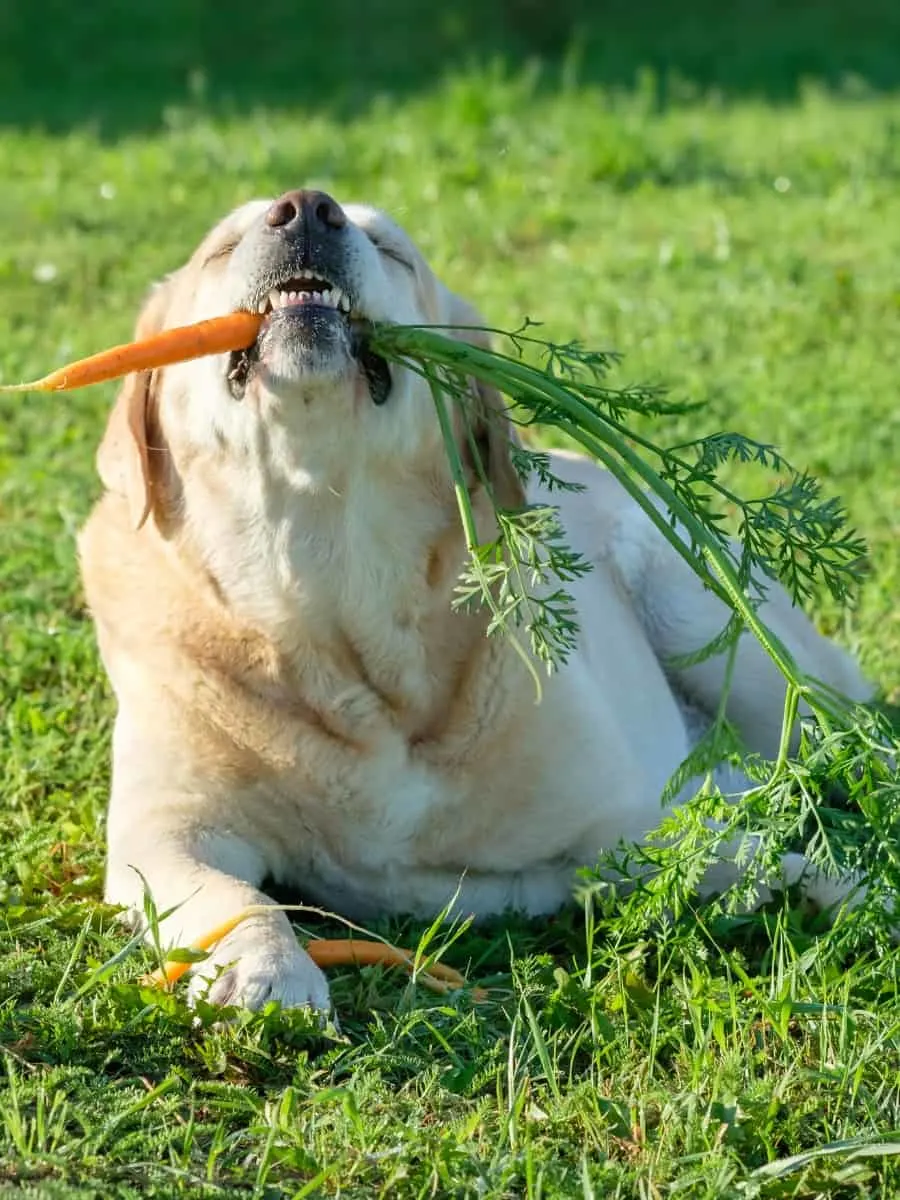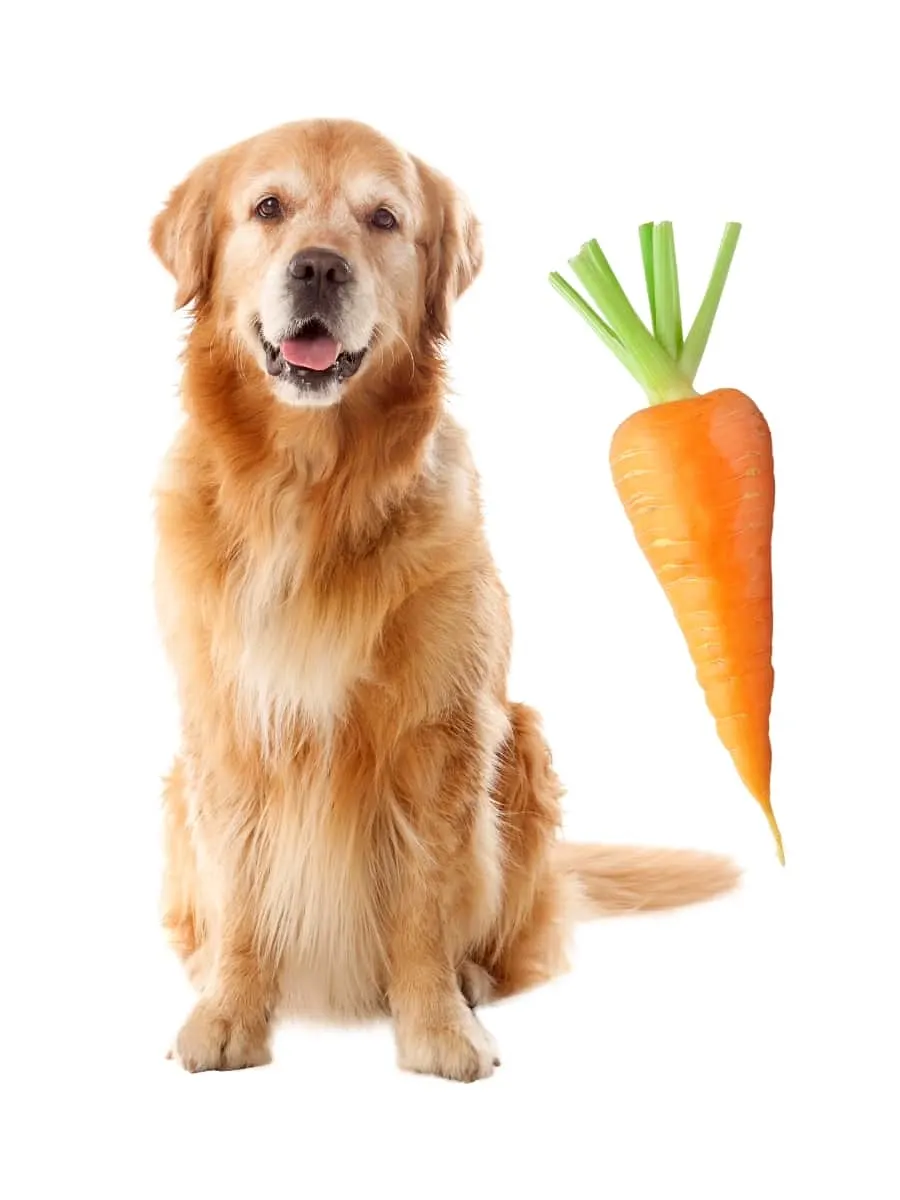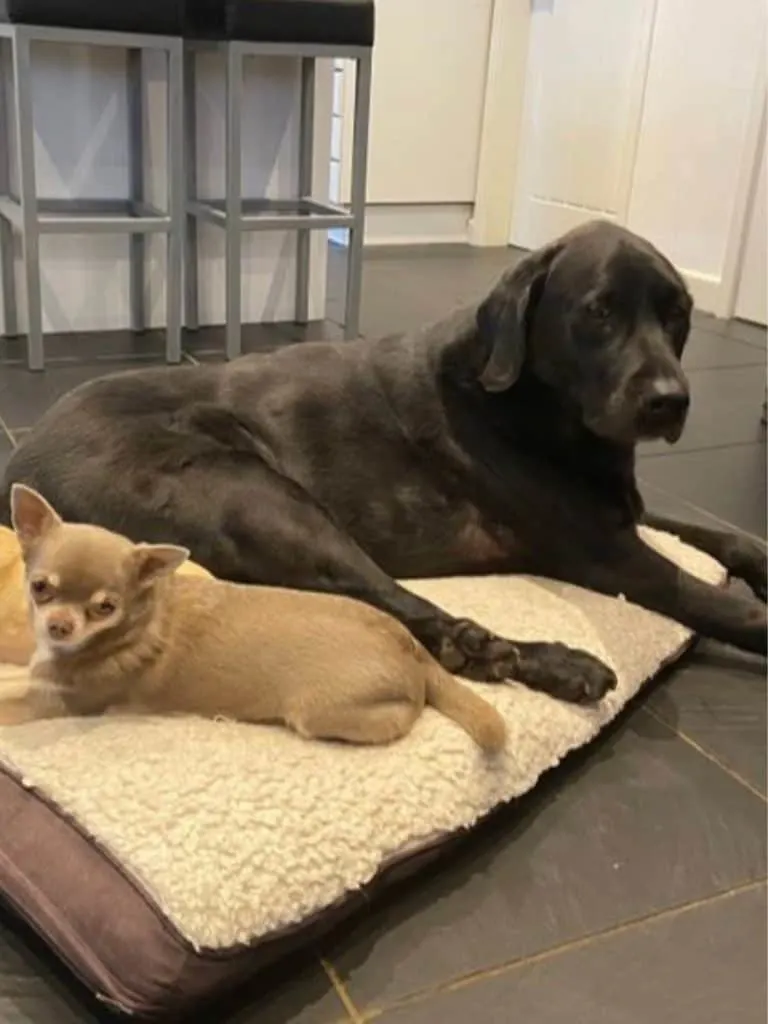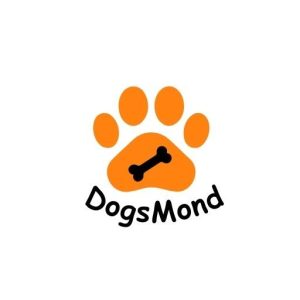As a lifelong Labrador lover and owner, I’ve always been passionate about ensuring that my furry friends receive the best possible care and nutrition. As the founder of a dog shelter that houses many Labradors, I’ve made it my mission to educate myself on all aspects of their health. One question I often receive from concerned dog owners is whether or not Labradors can safely consume carrots.
Labradors can eat carrots. They are an excellent source of vitamins, minerals, and fiber, providing many health benefits for your dog. Carrots are low in calories and high in beta-carotene, which can help support your dog’s immune system, promote healthy skin and coat, and keep teeth clean.
In this article, I’ll be diving deeper into the benefits of carrots for Labradors, discussing some potential risks, and telling you exactly how to prepare and feed them safely. I’ll also share some delicious and healthy carrot-based treat recipes that your pup is sure to love.
By the end of this post, you’ll have all the information you need to confidently add carrots to your dog’s diet and give them the gift of optimal health and nutrition.
So, let’s get started!

Can Labradors Eat Carrots?
Labradors can safely eat carrots containing essential vitamins and minerals that can benefit their health. However, it’s important to be mindful of how you feed them to your dog.
When giving your Labrador carrots, it’s best to cut them into smaller, bite-sized pieces to avoid choking. Additionally, while carrots can be a healthy treat, they should not make up a significant portion of your dog’s daily food intake.
It’s also important to keep an eye out for any signs of an allergic reaction, such as itching, swelling, or gastrointestinal issues, as some dogs may be allergic to certain vegetables.
Research has shown that excessive prolonged consumption of carrots can lead to increased vitamin A levels in dogs, which can positively impact their overall health and may even lead to slight weight gain.
Overall, carrots are a safe vegetable to add to your Labrador’s diet as long as you know the quantity and how you feed them. The table provided offers some nutritional information.
| Nutrient | Amount per 100g of Carrots |
|---|---|
| Calories | 41 |
| Carbohydrates | 9.6g |
| Fiber | 2.8g |
| Protein | 0.9g |
| Fat | 0.2g |
| Vitamin A | 835μg |
| Vitamin C | 5.9mg |
| Vitamin K | 13.2μg |
Benefits & Risks of Carrots for Labradors
Carrots can be a healthy addition to a Labrador’s diet, but it’s important to feed them in moderation as there are potential risks associated with overconsumption.
A study found that feeding granulated carrots to dogs increased palatability but also resulted in decreased fecal pH and digestibility, indicating both positive and negative effects.
Let’s weigh them both up!
Benefits of Carrots for Labradors:
- Nutritious: Carrots are a healthy snack for your dog because they are low in calories, fat, and sugar and high in fiber, vitamins, and minerals. According to the US Department of Agriculture, they include potassium, manganese, folate, iron, copper, and vitamins A, B, C, and K.
- Healthy skin and coat: Carrots’ biotin and vitamin A can improve your Labrador’s skin and coat condition.
- Eye health: The beta-carotene and vitamin A in carrots help support your Labrador’s vision and eye health.
- Digestion: Carrots’ high fiber content helps to support a healthy digestive system and prevents constipation.
- Immune system support: Vitamins A, C, and E found in carrots work as antioxidants to support your Lab’s immune system and protect against diseases.
- Bone and joint health: Carrots also provide essential minerals like calcium and potassium, promoting healthy bones and joints in your Labrador Retriever.

Risks of Carrots for Labradors:
- Allergies: Some dogs can be allergic to carrots, which may cause itching, skin irritation, or digestive issues like vomiting. According to VCA Hospitals, food allergies in dogs should be treated seriously as these can escalate quickly.
- Hard to digest: Carrots can be difficult for some dogs to digest, causing stomach upsets or gas.
- Choking hazard: Your dog could choke if you give him whole, uncut carrots. Carrots should always be sliced into manageable portions for your Labrador.
- Hypervitaminosis: Excessive consumption of carrots can lead to an overdose of vitamin A (hypervitaminosis), which can cause damage to the liver, bones, and joints.
Pro Tip! Always feed carrots as part of a balanced diet in moderation and tailor it to your dog’s individual needs.
How to Feed Carrots to a Labrador
My Labradors love to eat raw, crunchy carrots. But back then, I used to get dubious when feeding them because of possible risks. In the last two decades of spending time with all my rescue dogs, I mastered exactly how to feed a specific vegetable, fruit, or food item to my fur babies.
Of course, you can too!
Here’s how you can combine carrots into your Lab’s meals:
Raw Carrots: Always begin by giving the carrots a good scrubbing to get rid of any dirt or impurities. To prevent choking dangers and aid digestion, grate them or cut them into small, manageable pieces. Add the grated or chopped carrots to your dog’s regular diet, or give them as a treat occasionally.
Cooked Carrots: Cooked carrots may have a better flavor and texture for some Labradors. The carrots can be baked or steamed until tender but not mushy. Instead of boiling, steaming keeps more nutrients in the food, so I recommend this. Cut the cooked carrots into bite-sized pieces once cooled, then add them to your dog’s diet.
Start by introducing carrots in modest doses and watch your dog’s reaction, just like with any new meal. Consuming too many carrots can cause diarrhea or upset stomach. Moreover, giving your pet excessive vitamin A might be dangerous, so just give them a small amount.
Please see the table below to discover how many carrots are perfect for your Labrador according to age:
| Age of Labrador | Advised Daily Quantity |
|---|---|
| Puppy (2-6 months) | 1-2 baby carrots or 1-2 tbsp grated |
| Puppy (6-12 months) | 2-3 baby carrots or 2-3 tbsp grated |
| Adult (1-7 years) | 3-4 baby carrots or 3-4 tbsp grated |
| Senior (7+ years) | 2-3 baby carrots or 2-3 tbsp grated |
Keep an eye on any changes in your dog’s behavior or health when introducing any new food into their diet.

Carrot-Based Treat Recipes for Labradors
Looking for a healthy and tasty treat for your Labrador? Try these carrot-based recipes that are sure to satisfy their crunch!”
- Carrot and Peanut Butter Treats: Mix 1 cup of pureed carrots with 1/2 cup of natural peanut butter and 1 1/2 cups of whole wheat flour. Roll into bite-sized balls and bake at 350 degrees for 15-20 minutes.
- Carrot and Apple Biscuits: Mix 2 cups of grated carrots, 1 grated apple, 1 egg, 1/4 cup of olive oil, and 2 cups of whole wheat flour. Roll out and cut into shapes, then bake at 350 degrees for 20-25 minutes.
Is Your Labrador Sensitive to Carrots?
Carrots are generally a healthy snack for Labradors, but like humans, dogs can have allergies or sensitivities to certain foods. In rare cases, a dog may have a bad reaction. If your furry friend doesn’t tolerate this veggie well, they may exhibit several problems.
- Allergic reactions: Dogs can be allergic to specific foods. If your Labrador is allergic to carrots, they may exhibit symptoms like itching, swelling, or difficulty breathing.
- Digestive issues: Carrots may not be well absorbed by some dogs’ stomachs. Your dog may experience digestive discomfort if it exhibits symptoms like vomiting, diarrhea, and nausea.
One of my pups had a tummy upset the first time I fed him a few pieces of carrot. But then it improved after a short while and checking with my vet.
“Of course, it can happen to any pet! So, don’t worry, but take care as you feed carrots in the long run. However, repeated diarrhea is a red flag.”
The warning indications of an adverse reaction in your Labrador are listed here, along with what to do if you detect them.
| Reaction/Symptom | Correct Course of Action |
|---|---|
| Allergic reaction (itching, swelling, difficulty breathing) | Contact your veterinarian immediately. They may recommend antihistamines or other treatments. |
| Digestive discomfort (vomiting, diarrhea, nausea) | Monitor your dog closely. If symptoms persist or worsen, contact your vet. They may recommend a bland diet or medication to ease symptoms. |
| Choking or blockage | If your dog is choking or has a blockage, seek emergency veterinary care immediately. |
| Tooth damage | If your dog experiences tooth damage from chewing on carrots, contact your vet to determine the best course of action. They may recommend a dental exam or treatment. |

Carrot Alternatives for Labrador Retrievers
Labradors love to crunch on carrots – but there are safer and healthier alternatives your dog can try, too!
Here’s a list of some great alternatives to carrots for your Retriever:
- Broccoli: Broccoli is a nutritious vegetable that is packed with vitamins and minerals, including vitamin C, vitamin K, and fiber. You can easily add it to your dog’s regular food after steaming or boiling it.
- Green Beans: Green beans are also a great source of vitamins and minerals, including vitamins A, C, and K, as well as minerals like iron and calcium. However, it’s best to cook them before feeding to avoid digestion issues.
- Cabbage, Cauliflower, and Brussels Sprouts: These cruciferous vegetables are loaded with vitamins and minerals, including vitamins C, and K, and antioxidants. These vegetables should be steamed, boiled, or cooked before serving, as they can cause gas when fed raw.
- Peas: Peas are a good source of vitamin A, fiber, and protein. You can include them in your dog’s diet by adding cooked or frozen peas to their meals.
- Pumpkin: This veggie provides essential nutrients like beta-carotene, fiber, and potassium. You can add it to your dog’s food after cooking and pureeing it or offer a small slice as a snack.
- Celery, Spinach, and Asparagus: These leafy greens are also rich in vitamins and minerals. When cooked, they make healthy additions to your Labrador’s meals.
- Beets and Bell Peppers: Both beets and bell peppers are high in fiber, vitamins, and antioxidants. They can be incorporated into your dog’s diet in small amounts, but make sure to cook them before feeding.
- Fruits: Adding fruits like apples, papaya, and watermelon to your Labrador’s diet can be an enjoyable way to provide them with vitamins and minerals. Just make sure to remove any seeds and peel the skin off before serving. Here’s a list: 25+ safe fruits for Labradors.
The detailed list of vegetables is here: 25 healthy vegetables for Retrievers.
When giving any of these alternatives, always start with small amounts to evaluate your dog’s tolerance and ensure no digestive issues arise. Remember to keep a check on the portion sizes, as excessive amounts of veggies can lead to an imbalance in your dog’s overall diet.
FAQs
Can carrots help improve my Labrador’s eyesight?
Carrots are often associated with improving eyesight due to their high levels of beta-carotene, which is converted to Vitamin A in the body. Vitamin A is essential for maintaining healthy eyesight, and a deficiency in this vitamin can lead to vision problems in dogs. However, dogs require a specific balance of nutrients in their diet, and feeding them too many carrots can actually be harmful.
Can you overfeed carrots to Labradors?
Yes, it is possible to overfeed dogs carrots. While they can be a healthy, low-calorie snack for dogs, they should still be given in moderation. Too many carrots can cause stomach upset and diarrhea in dogs. Additionally, it could lead to an excessive intake of vitamin A, which can be toxic in high doses.
Can I give my Lab puppy a carrot for teething?
You can give your Lab puppy a carrot for teething. They are a safe and healthy snack for puppies, and chewing on them can help soothe their sore gums during the teething process. However, you must cut the carrots into bite-size pieces and supervise your puppy while they are chewing to prevent choking.
Related Posts You May Like:

